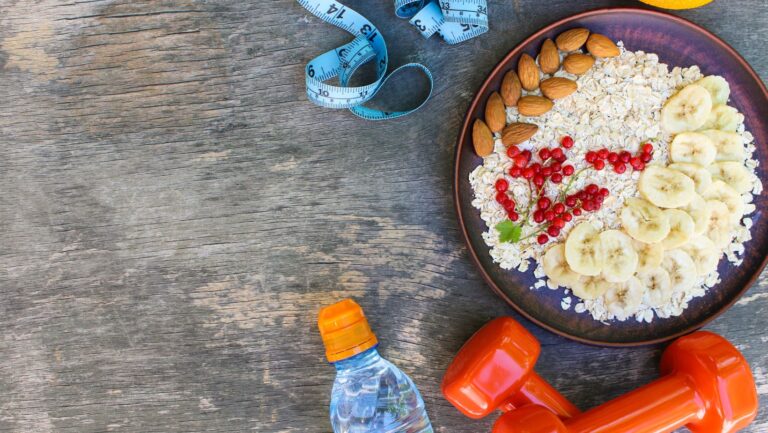If you’re looking to improve your fitness game while maintaining a low-carb or gluten-free diet, you’re in the right place.
Many people believe that cutting carbs means sacrificing energy and performance during workouts, but that’s simply not true.
When following a fitness regimen, it’s important to fuel your body with the right nutrients. For those on a low-carb, gluten-free diet, products like gluten free protein bars have proven to be a game-changer.
In this article, we’ll explore some of the best ways to build your body for peak performance while keeping those pesky carbs at bay.
From pre-workout snacks to post-workout recovery meals, we’ve got you covered with all delicious and nutritious options that won’t break your low-carb or gluten-free commitment.
Say goodbye to feeling sluggish during your gym sessions – it’s time to power up with low-carb fitness fuel!
Pre-Workout Snack Ideas
When it comes to optimizing your workout nutrition, finding the right pre-workout snack can be a challenge, especially if you’re looking for gluten-free options. Thankfully, plenty of gluten-free protein sources and allergen-friendly alternatives, such as beef jerky sticks, can help fuel your workouts without causing any unwanted side effects.
Including these snacks in your fitness routine will provide you with the energy you need and support muscle growth and recovery.
One popular choice for a pre-workout snack is a protein shake made with gluten-free protein powder. Various types of gluten-free protein powders are on the market, such as rice, pea, or hemp-based proteins. These plant-based options are not only free from gluten but also cater to those who follow a vegan or vegetarian diet. For those who prefer animal-based proteins, there are also egg white and beef protein powders that can be used as allergen-friendly alternatives. Just make sure to choose a high-quality product that doesn’t contain any hidden sources of gluten or other allergens.
Another great pre-workout snack option is combining whole foods that provide both carbohydrates and proteins. Some ideas might include rice cakes topped with almond butter and sliced banana or apple slices paired with a dairy-free yogurt dip made from coconut milk yogurt mixed with chia seeds and honey. These combinations provide quick-digesting carbs for immediate energy during your workout while supplying adequate amounts of protein to help repair muscles afterward.

By choosing these nutrient-dense and gluten-free options, you’ll be able to maximize your workout performance without sacrificing taste or variety in your diet.
Maintaining Energy Levels During Exercise
Now that you’ve got some delicious pre-workout snack ideas under your belt, it’s time to focus on how to keep your energy levels up during your exercise. Your body needs a constant supply of fuel to maintain peak performance, and this is especially true when you’re following a low-carb, gluten-free diet. Let’s dive into some strategies for maintaining sustained endurance throughout your workout.
First and foremost, never underestimate the hydration importance during exercise. Water is essential for regulating body temperature and ensuring proper muscle function. As you work out, your body loses fluids through sweat, so it’s crucial to replenish those lost fluids by drinking fluids before, during, and after exercise.
Aim for at least 8 ounces of water every 15-20 minutes during your workout session. If you need an extra boost of electrolytes, consider adding a sugar-free electrolyte supplement or sports drink to help replenish sodium and potassium levels without adding unnecessary carbs.
Another way to maintain energy levels during exercise is by consuming small amounts of easily digestible carbohydrates throughout the workout. While it may seem counterintuitive for those on a low-carb diet, consuming a small number of carbs can provide quick energy that helps prevent fatigue and keeps you going strong.
Good options include gluten-free energy gels or chews that contain minimal sugar but offer fast-acting fuel for muscles. Be mindful of portion sizes, as overconsumption could lead to gastrointestinal discomfort or negate the benefits of your low-carb lifestyle.
Remember that everyone’s nutritional needs are different; experiment with various strategies and find what works best for your body in order to achieve optimal performance while adhering to your dietary restrictions.
Post-Workout Recovery Meals
Recovery hydration is essential to your post-workout nutrition plan, especially when following a low-carb and gluten-free diet. Drinking enough water after exercising helps to replenish the fluids lost through sweat and ensures proper body temperature regulation.
Additionally, incorporating electrolyte-rich beverages such as coconut water or sugar-free sports drinks can provide your body with essential minerals containing sodium, potassium, and magnesium that promote optimal muscle function.
Muscle repair is another crucial aspect of post-workout recovery nutrition. Consuming really high-quality protein sources like lean meats, fish, eggs, or plant-based alternatives such as tofu or tempeh within 30 minutes to an hour after working out can help stimulate muscle protein synthesis.
This process is vital for repairing the microscopic tears in muscle fibers that occur during exercise and promoting overall muscle growth. Pairing these protein sources with low-carb vegetables like leafy greens or cruciferous veggies can further support your body’s recovery efforts by providing essential vitamins and minerals.
As you continue on your fitness journey while adhering to a low-carb and gluten-free diet, remember that post-workout recovery meals play a significant role in helping you achieve your goals. Prioritize hydration and nutrient-dense foods that promote muscle repair to optimize your body’s ability to bounce back from physical exertion.
By doing so, you’ll be better equipped to maintain consistent progress in your workouts and ultimately enhance your overall health and well-being.
Balancing Macronutrients For Optimal Performance
Achieving peak performance during workouts requires a balanced approach to nutrition, especially when following a low-carb and gluten-free diet.
One of the essential aspects of workout nutrition is finding the right macronutrient ratios tailored to your specific needs and fitness goals. Customized nutrition plans can be highly beneficial in ensuring that you are fueling your body with the appropriate nutrients necessary for optimal performance.

Macronutrient ratios refer to the percentage of calories derived from protein, carbohydrates, and fat. The ideal macronutrient ratio may vary depending on factors such as individual fitness goals, body composition, and exercise intensity.
For example, endurance athletes may require a higher proportion of carbohydrates for sustained energy during long workouts, while strength-training individuals might focus more on protein intake to support muscle growth and repair.
A low-carb diet does not necessarily mean eliminating carbs entirely; it’s about choosing quality sources such as vegetables, nuts, seeds, and gluten-free grains that provide sustained energy without causing inflammation or digestive discomfort.
As you experiment with different macronutrient ratios and customized nutrition plans suited to your unique needs, pay attention to how your body responds. Keep track of changes in energy levels, recovery times between workouts, mood fluctuations, sleep quality, and overall physical performance.
By monitoring these indicators closely and adjusting your macronutrient ratios accordingly, you will be better equipped to optimize your workout nutrition without compromising health or sabotaging fitness goals on a low-carb and gluten-free diet.

